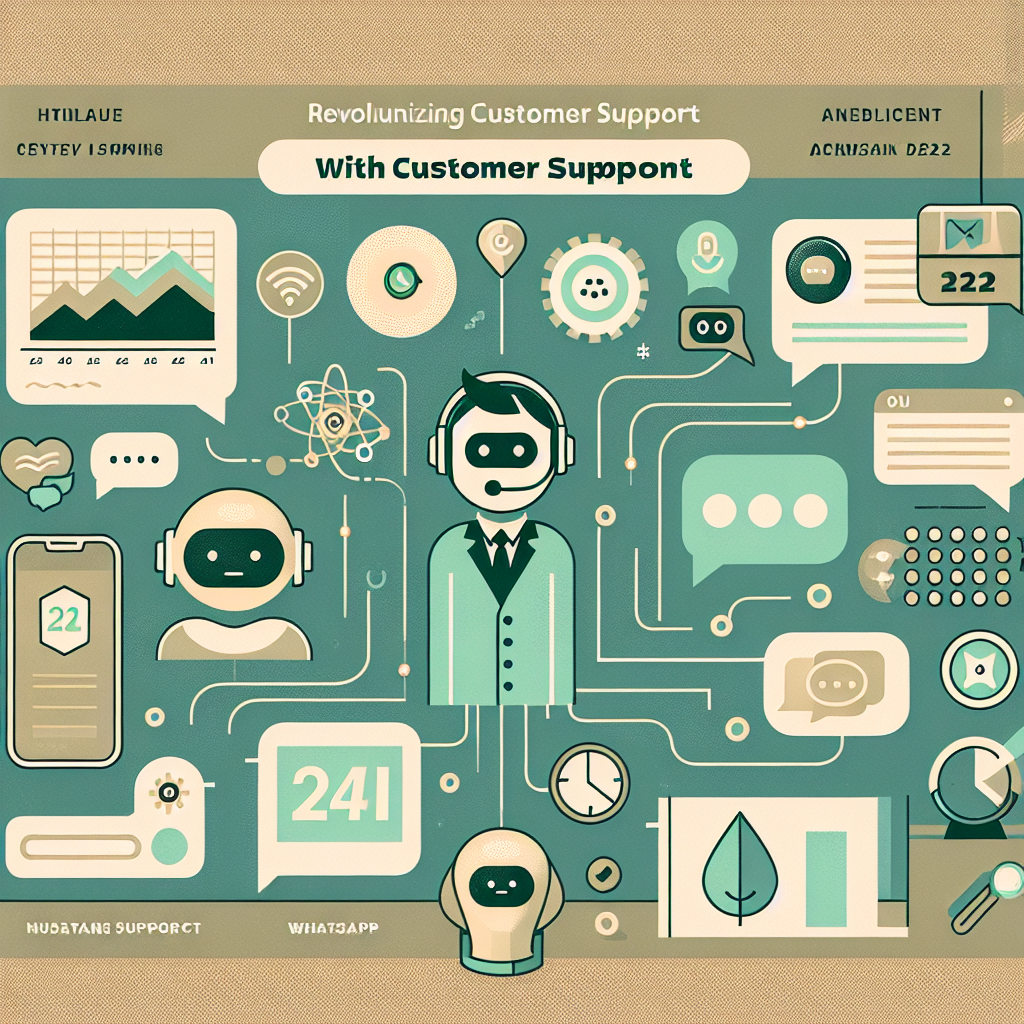“`html
Revolutionize Your Customer Support: 24/7 AI Agents Now on WhatsApp & Telegram!
In today’s fast-paced, digitally-driven world, customer support has become the backbone of business success. Meeting increasing demands for instant communication and 24/7 availability is a challenge many businesses face. Enter AI customer support — a groundbreaking innovation transforming customer interactions. With advanced WhatsApp chatbot technology and AI-powered solutions on platforms like Telegram, businesses can deliver seamless, real-time support around the clock. This article explores the benefits, implementation strategies, and future possibilities of 24/7 AI agents on WhatsApp and Telegram to take your customer service to new heights.
Why 24/7 AI Customer Support is Essential
-
Meeting Modern Customer Expectations
Today’s customers demand instant responses and expect on-demand services that minimize wait times. AI customer support bridges the gap between expectation and reality, enabling businesses to provide prompt, efficient solutions anytime.
-
Reducing Operational Costs
Traditional human-led customer support can be costly, with expenses related to training, salaries, and infrastructure quickly adding up. AI-powered WhatsApp chatbots lower these costs while scaling interactions without compromising quality.
-
Enhancing Scalability
AI customer support systems handle multiple queries simultaneously across diverse demographics and time zones. Whether managing multi-language audiences or different regions, AI ensures seamless communication at scale.
How WhatsApp Chatbot Technology Works
-
Understanding WhatsApp Chatbots
A WhatsApp chatbot is an AI-powered tool designed to automate customer interactions directly within the app. Using Natural Language Processing (NLP) and machine learning algorithms, these bots respond to user inputs in a conversational format.
-
Key Features of WhatsApp Chatbots
WhatsApp chatbots offer advanced features like automated replies, data collection, multilingual support, payment processing, and CRM integrations, enabling businesses to provide personalized, efficient customer service.
-
Integrating WhatsApp Chatbots Step-by-Step
The implementation process includes 1) selecting a chatbot platform, 2) configuring workflows, 3) training the AI with relevant data, and 4) integrating the chatbot with WhatsApp’s API for smooth operations.
Why Telegram is Another Game-Changer
-
Versatility and Global Adoption
Telegram boasts over 700 million active users globally. By incorporating AI customer support on Telegram, businesses can leverage its extensive user base and versatile bot functionalities.
-
Customizable Telegram Bots
Telegram bots enable greater customization compared to other platforms. Businesses can automate tasks, tailor workflows, and integrate AI tools to provide personalized customer services.
-
Cross-Platform Synergy
Businesses don’t need to focus on a single platform. Many strategically deploy WhatsApp and Telegram chatbots together to maximize outreach and efficiency.
Benefits of AI Customer Support on WhatsApp and Telegram
-
24/7 Availability
AI agents ensure customer support availability at any time, regardless of time zones or holidays, guaranteeing no query goes unanswered.
-
Improved Customer Engagement
AI chatbots facilitate conversational interactions that enhance satisfaction and foster stronger brand loyalty.
-
Data-Driven Insights
AI systems gather customer interaction data, offering actionable insights into preferences and behavior patterns to refine business operations.
Challenges and Solutions in Implementing AI Customer Support
-
Potential Risk: Lack of Personalization
AI excels at handling repetitive queries but may lack the human touch. A hybrid model, where human agents intervene for complex queries, addresses this issue.
-
Data Privacy Concerns
AI must comply with privacy laws like GDPR when collecting user data. Partnering with providers offering built-in compliance features alleviates this concern.
-
Technical Challenges
Integrating chatbots with existing systems can be challenging. A clear roadmap and support from experienced developers help streamline implementation.
Practical Implementation Strategies for 24/7 AI Support
-
Define Your Objectives
Outline your customer support goals, whether improving response times, data handling, or engagement.
-
Choose the Right AI Platform
Platforms like ChatGPT or Dialogflow offer varying customization options. Select one that aligns with your business needs.
-
Perform Rigorous Testing
Conduct extensive tests to identify conversational flaws and optimize workflow integration before launch.
-
Monitor and Optimize Continuously
Continuously monitor interactions to improve chatbot performance and user experience.
The Future of AI Customer Support on WhatsApp and Telegram
The evolution of AI customer support is exponential, with WhatsApp and Telegram emerging as pivotal platforms in this transformation. Advances in AI technologies are enabling businesses to provide increasingly personalized and intuitive client interactions. In the future, AI might predict customer needs before they arise, setting global standards in customer service. By embracing AI-powered solutions now, businesses can revolutionize operations and position themselves ahead of the competition.
Conclusion
24/7 AI agents on WhatsApp and Telegram are not just trends — they represent the future of customer support. By leveraging AI customer support technologies, businesses can enhance engagement, increase efficiency, and reduce costs. Whether deploying a WhatsApp chatbot or integrating Telegram bots, these solutions provide unmatched scalability and adaptability to meet modern customer demands. Embrace the revolution today to remain competitive and deliver exceptional support anytime, anywhere.
“`

